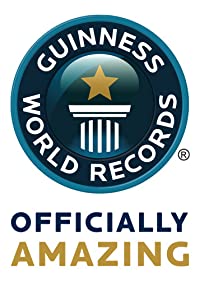There's No Such Thing as a World Record in Open Water Swimming
There is (almost) no such thing as a “world record” in open water swimming.
The term “world record” implies that the activity being measured is comparable across different contexts (hence “world”). A 200m Butterfly swum at “The Nat” in Indianapolis can be compared to a 200m Butterfly swum at the beautiful new facility at Belmont Plaza, because both pools have been measured at 50m. A 200 Fly is a 200 Fly is a 200 Fly.

Open water swimming is, in most cases, not comparable across different contexts. And isn’t that a good thing? Isn’t that, at some level, why most of us are drawn to open water in the first place?
A swim from Santa Rosa Island to my hometown of Goleta is not meaningfully comparable to the Manhattan Island Marathon Swim, despite both swims being 28 miles.
What about “world records” for specific swims? Obviously a Catalina Channel swim is incomparable to a Maui Channel swim, but surely a Catalina Channel swim is comparable to a Catalina Channel swim? Excluding weather and conditions, surely we can say that Penny Lee Dean swam the fastest crossing of the Catalina Channel (7 hours, 15 minutes, 55 seconds in 1976)?
I agree: Penny Lee Dean is the fastest solo swimmer across the Catalina Channel. But that is a course record, or “Catalina Channel record.” Not a “world record.” Is it possible to swim the Catalina Channel in… Ireland? Or Mozambique? No? Then it’s not a world record.
There is no “world record” for the Boston Marathon. There is no “world record” for Ironman Hawaii. But there are Boston Marathon course records, and Ironman Hawaii course records.
There’s a reason FINA hires surveyors to measure pools for international-level swim meets. There’s a reason there are wind-speed gauges at big track meets: So the courses are comparable, regardless of the location. So world records can be authenticated.
So why do some open water swimmers claim world records?
Open water swimming promoter Steven Munatones provided some insight on the Marathon Swimmers Forum (bold added):
I have learned about thousands of new swims, new swimmers and new bodies of water around the world. I literally have thousands of swims that I have yet to input in the WOWSA database. Every one of these swims and swimmers should be recognized and, frankly, I think calling the swimmers a World Record Holder is cool and uplifting. They often take that recognitionand share it with their family, friends, coach, co-workers and local media. The recognition not only helps educate non-swimmers about the swimmer, but also about our sport. Many will argue that such swims should not even be called a record (national or course). I can understand their opinion, but I would rather elevate the swimmer and their efforts to something more grand and publicly eye-catching.
For the publicity. For the attention.
Now, remember I said almost. I can think of two possible “world records” in open water swimming. But only two.
- Speed records, controlled course. Speed over a standard distance (5km, 10km, 25km), in a controlled environment (like a rowing basin) on a precisely measured course. Buoys measured by civilian GPS are probably not precise enough. A 10K in a rowing basin is a 10K in a rowing basin is a 10K in a rowing basin.
- Distance records, non-current-assisted. In my opinion, the distance records claimed over the years, e.g., Martin Strel’s river swims and Diana Nyad’s Bimini-to-Florida swim, are almost meaningless. Cool, impressive swims, but not meaningful as quantifiable “records.” Anyone can float down a river. So a distance record needs to be non-current-assisted. Or at most _minimally _current-assisted (similar to wind thresholds in track meets). If Jamie Patrick swims 77+ miles in Lake Michigan this summer, then I’d have no problem with him calling it a “world distance record.” Because distance is a comparable metric across different contexts.